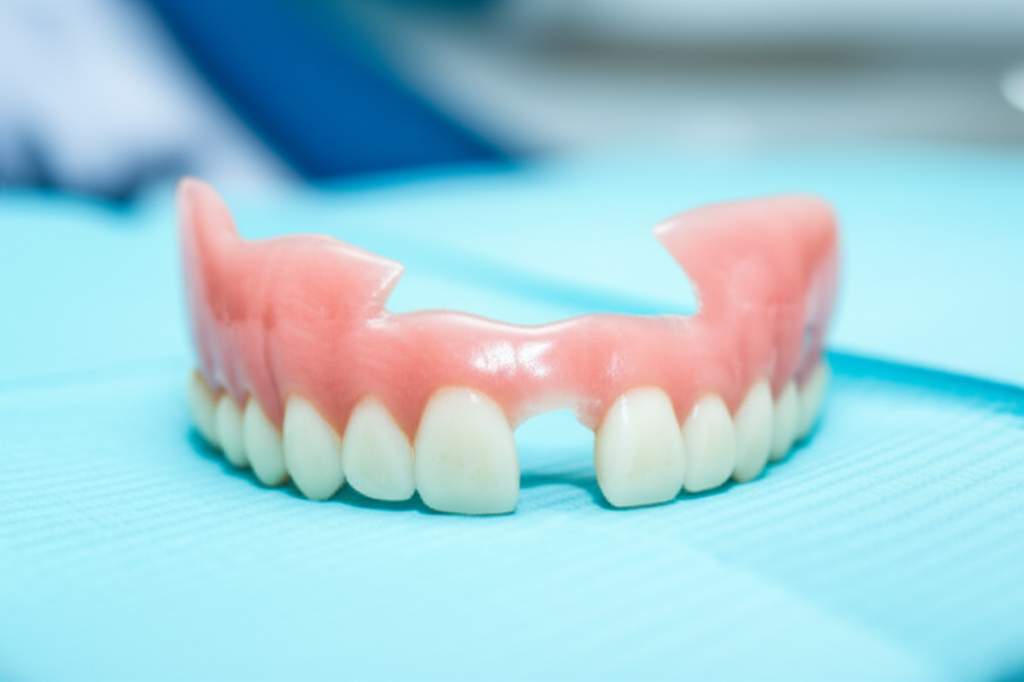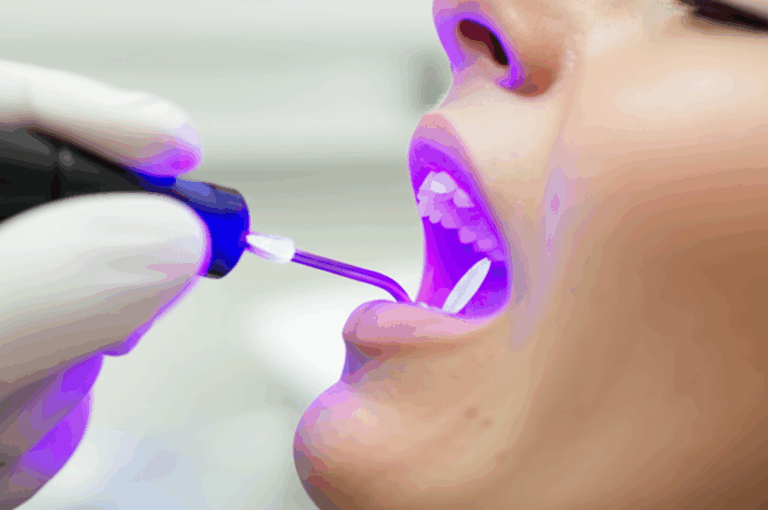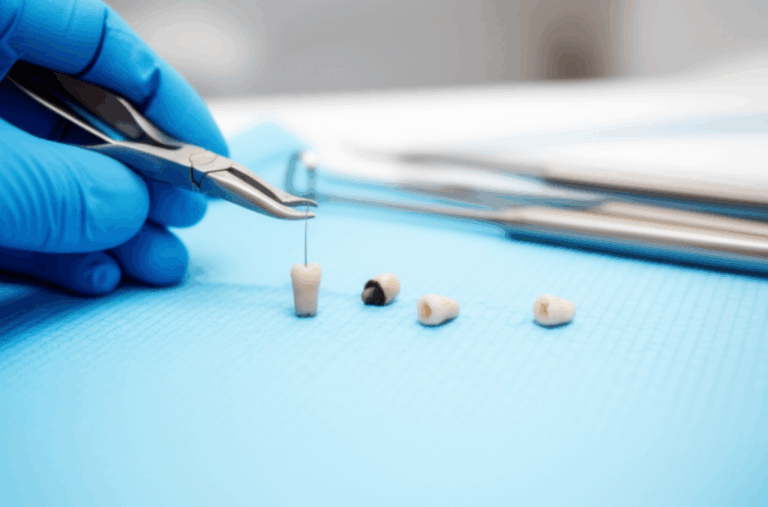
Can a Dentist Fix Broken Dentures? Your Guide to Professional Repair
Have you ever had that bad feeling when you see your dentures broke? Maybe you feel worried, upset, or even a little embarrassed. Don’t stress—you’re not the only one. Broken dentures happen a lot, but the good news is a dentist can usually fix them fast and safely. In this article, I’ll tell you what happens when dentures break, what you should do next, and how professional repair from the dentist helps. If you’ve ever wanted to know, “Can a dentist fix broken dentures?”—this is the plain guide you need.
Table of Contents
Why This Article Is Worth Reading
Broken dentures can feel like the end of the world. You need your dentures for chewing, talking, and feeling sure about how you look. When they break, it’s more than a hassle. It can ruin your day—maybe even your health. I’ll show you why you should always let a dentist fix your dentures instead of trying at home. Here’s what you’ll learn:
- What to do right after your dentures break
- The ways a dentist can fix dentures
- Why fixing your dentures at home is risky
- How a dentist can keep your mouth healthy
- Things that help your dentures last longer
By the time you finish, you’ll know exactly what to do and who to reach out to if your dentures break.
Can a Dentist Fix All Types of Broken Dentures?
Broken dentures are kind of like a flat tire. Sometimes you just need a patch; other times, you need a whole new tire. Most of the time, a good dentist can fix the usual types of denture damage.
Most Problems Can Be Fixed
Dentists and prosthodontists fix cracked, chipped, or loose dentures all the time. If you break the pink base, lose a tooth from your denture, or even snap a clasp on your partial, there’s a good chance a dentist can patch it up.
But Not Every Denture Can Be Saved
There are cases where a fix won’t work. If a denture has many breaks, is very old, or doesn’t fit right because your mouth changed, then getting a new denture might be best. Sometimes, gum or bone changes make your old dentures impossible to fit again. Don’t stress—your dentist will help you pick the safest, best way.
What Types of Denture Damage Can Be Repaired?
Dentures are pretty strong, but they aren’t unbreakable. Here are the usual problems a dentist can fix:
Cracked or Broken Denture Base
Dentures that split in half, have little cracks, or chip on the edge are some of the biggest reasons for emergency fixes. The pink part, called the base, is usually made out of acrylic. Small cracks or even full breaks can usually be fixed by adding new acrylic.
Missing or Broken Denture Teeth
Teeth can fall out or break, especially if your denture hits the ground. Your dentist can usually put a new tooth in or glue things in a dental lab.
Broken or Loose Clasps (Partial Dentures)
If your partial denture slips, or you see a broke clasp, don’t worry. Dentists can attach new clasps or fix the frame so your denture stays in place.
Dentures That Don’t Fit
After a while, your dentures can feel loose from daily use or changes in your mouth. This is not always a “break,” but relining (putting more material inside) or rebasing (making a new base using your old teeth) can help.
Small Chips and Sharp Spots
Little chips or rough places can be smoothed down in the dental office. This stops sharp edges from hurting your gums.
Table: Common Denture Repairs
| Type of Problem | Is Repairable? | Repair Time | Replacement Needed? |
|---|---|---|---|
| Cracked base | Yes | Hours–2 days | Rarely |
| Broken tooth | Yes | Hours–1 day | Unlikely |
| Lost clasp | Yes | 1–3 days | Sometimes (if bad) |
| Ill-fitting | Yes | 1–2 days | No |
| More than one break | Sometimes | Days | Sometimes |
| Old/warped dentures | Unlikely | — | Often |
What Happens During Professional Denture Repair?
When your denture snaps, you may worry about what happens at the dentist’s office. Relax—I’ve seen it many times. Dentists and dental lab techs follow a careful step-by-step plan to fix your teeth.
Step 1: Checking Things Out
A dentist looks over your dentures and your mouth. They’ll see if there are cracks, missing teeth, or anything broken. If you have any pain or cuts, tell them.
Step 2: Making a Mold (If Needed)
For big repairs like relining or rebasing, your dentist might take a fresh mold of your mouth. This helps the lab make a denture that fits right.
Step 3: Repair Work
Small fixes—like a crack or one tooth—can happen right in the office with special glue or new acrylic. For trickier repairs, your dentures go to a removable denture lab where experts use good materials and tools to mend, shape, and polish the repair.
Step 4: Making Sure It Fits
When you pick up your fixed denture, your dentist will check if it fits and feels right. If anything feels funny, tell them!
Repair Time
- In-office fixes: 1 to 3 hours (great for cracks or one tooth)
- Lab repair: 1 to 3 days (for big problems, metal frame fixes, or relines)
Why Can’t You DIY Your Denture Repair?
Maybe you feel like using super glue or something from the drugstore. Maybe a buddy told you it’s “fine.” Please don’t try it at home. Here’s why:
The Fit Matters
Dentures have to fit your mouth just right. Fixing them yourself almost always makes things worse. If they don’t fit, you can get sore spots, blisters, or even infections.
Glues Can Be Dangerous
Normal glues, like super glue, have chemicals that can burn your gums or make you sick. Even “denture adhesive” from the store isn’t for fixing breaks—just for making dentures stick a bit better.
Repairs Don’t Last and May Void Your Warranty
DIY repairs don’t hold up well. Often, fixing your own denture stops a dentist from fixing it later, and sometimes your denture’s warranty won’t cover it if you try a home fix.
Short answer: Trying to fix dentures at home makes more problems than it solves. Leave it to the pros.
How Much Does Denture Repair Cost?
| Type of Repair | Common Cost (USD) ||----------------------|:-------------------:|| Simple tooth repair | $75 – $150 || Small crack fix | $100 – $250 || Hard/soft reline | $250 – $500 || New base | $400 – $800+ || Full new denture | $1,000 – $3,000+ |Denture repair prices depend on the problem. Fixing a broken tooth or little crack is the cheapest. Relining or making a new base costs more, but it’s still less than getting a totally new denture.
What About Insurance?
Lots of dental insurance helps pay for denture repairs, especially if you go to your dentist a lot. Be sure to ask if insurance will help you pay.
When to Repair or Replace?
Simple rule: Small problems are almost always cheaper to fix than to start new. If the denture is old or badly broken, getting a new one might save you money and worry.
How Can You Prevent Denture Breakage?
Wouldn’t it be awesome if dentures never broke? With simple habits, you can keep your dentures working longer.
How to Make Dentures Last
Denture Life Facts
A good pair of dentures, cared for well, lasts 5–10 years. Most people need a reline or adjustment every 2–5 years. Fixing small problems early can add years to your denture life.
If you want to see how new tech helps make and repair dentures, you can check out a digital dental lab or see how a china dental lab does pro repairs.
When Is It Time to Replace Your Dentures?
Not all dentures can last forever. Sometimes, fixes won’t work, and you need a full new set.
When You Need a New Denture
- Lots of Breaks: If your denture keeps breaking, the base might be too weak to fix.
- Old and Warped Dentures: Over time, dentures change shape and just can’t be fixed.
- Your Mouth Changed a Lot: Gums and jawbone can shrink—if that happens, only a new denture will fit right.
- Many Teeth Missing or Broken: That’s a sign the denture is worn out.
If your dentist says you need a new denture, it’s not a bad thing. Brand new dentures usually fit better, look better, and feel better.
High-quality new dentures from a professional removable denture lab or a dental ceramics lab help you get a tough, natural smile.
FAQ: Quick Answers to Common Denture Repair Questions
Can I eat with broken dentures?
Don’t eat with a broken denture. It can make the damage worse or even cut your mouth.
What if a denture tooth falls out?
Save the tooth and call your dentist. Never try to glue it back yourself.
How long does denture repair take?
Small repairs are done the same day or next day. Bigger repairs can take up to three days.
Do I need a special dentist?
Most regular dentists can fix dentures. For hard cases, a prosthodontist is your expert.
Will fixed dentures be as strong as before?
If fixed right, your dentures should be just about as strong as before. But if they break a lot or have big cracks, they get weaker.
Summary: The Most Important Things to Remember
- Most broken dentures can be fixed by a dentist with safe, pro materials.
- Don’t fix dentures yourself—store glue and home kits usually make it worse.
- Professional repairs are fast and not too pricey. Fixes cost less than most new dentures.
- Take care of dentures, clean and store them carefully, and be gentle.
- Go to your dentist for regular check-ups. It can save you from big problems.
- Some dentures just can’t be saved. If that’s true for yours, getting a new denture is a good next step.
Your smile matters. If you see a crack, a lost tooth, or just feel something’s off, call your dentist. Acting fast can save you trouble and keep your confidence high.








